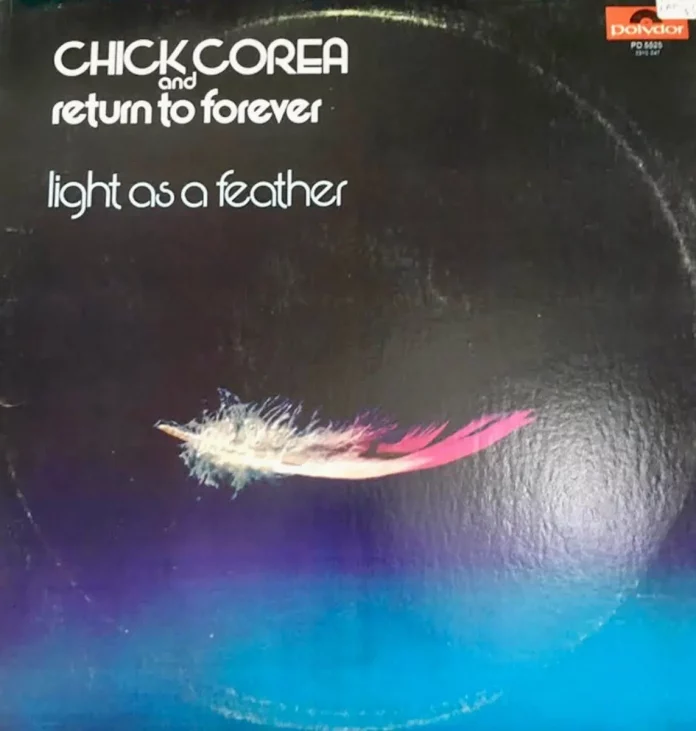It’s anyone’s guess whether the music Chick Corea’s making now is going to last, and one must guard against the incontinent use of the superlatives that immediately suggest themselves as the only adequate way to communicate the vibes Return to Forever create; but I’ve rarely heard music of any kind that spills over so convincingly with the sheer joy of music-making.
The band’s leading lights are Corea and Clarke, a couple of virtuosos who combine superb technical accomplishments (especially Clarke) with the ability to swing violently through their Latinesque rhythms, very personal tones and, it must be admitted, a number of personal clichés, both improvisational and compositional. This is easy to forgive in view of the great feeling that made Ronnie Scott’s float last autumn and surges off both their LPs.
The addition of Joe Farrell’s more straight-ahead jazzer’s voice makes the mixture even headier, and the horn and keyboard unisons, whether in theme statement or to fill in the gaps between vocal phrases, are amongst the most arresting passages on the album. Oh yes, the vocal phrases: as I’ve remarked before, Flora Purim’s voice is completely colourless and flat (in the metaphorical rather than the musical sense), and most of the words she has to sing are close to being dangerous propaganda for the Society For The Perpetuation Of Wet Nursery Rhymes Unrelated To Life As It Is Lived:
‘O days are so much fun
For those who know that in love
All life’s a game’
The instrumental bits more than compensate however, which makes it especially regrettable that Polydor have omitted all personnel except Flora and Chick from the sleeve. (Flora, by the way, together with her husband Airto, and Mr Farrell, has now left the group).
It’s becoming necessary these days to justify the use of electric pianos, although jazz fans who object to them per se are being inconsistent if not hypocritical; anyone who digs Charlie Christian has no business being snobby about an instrument just because it’s plugged into the mains, and to insist that all Fender-Rhodes users sound alike is as absurd as it would be to suggest that if Duke Ellington, Memphis Slim and Cecil Taylor sat down at the same Steinway one after the other, they’d all sound the same.
Chick Corea’s touch and approach to harmony has stamped his work with a stylistic identity discernible through all the stages of his career; on the Fender, he just sounds warmer and more lyrical, and although ‘happy music’ is part of the cynical seventies’ vocabulary of abuse, it is in fact just as hard to create music that communicates a genuine joy as it is to move an audience with tragic power; Chick Corea and Return to Forever have chosen to aim for the first of these, and their efforts have been 100 per cent successful.
Discography
You’re Everything; Light As A Feather; Captain Marvel (21 min) – 500 Miles High; Children’s Song; Spain (22 min)
Joe Farrell (flt/sop/ten); Chick Corea (el-pno); Stanley Clarke (bs); Airto Morelra (dm/perc); Flora Purim (vcl/perc). London, autumn 1972.
(Polydor 2310 247 £2.15)
















